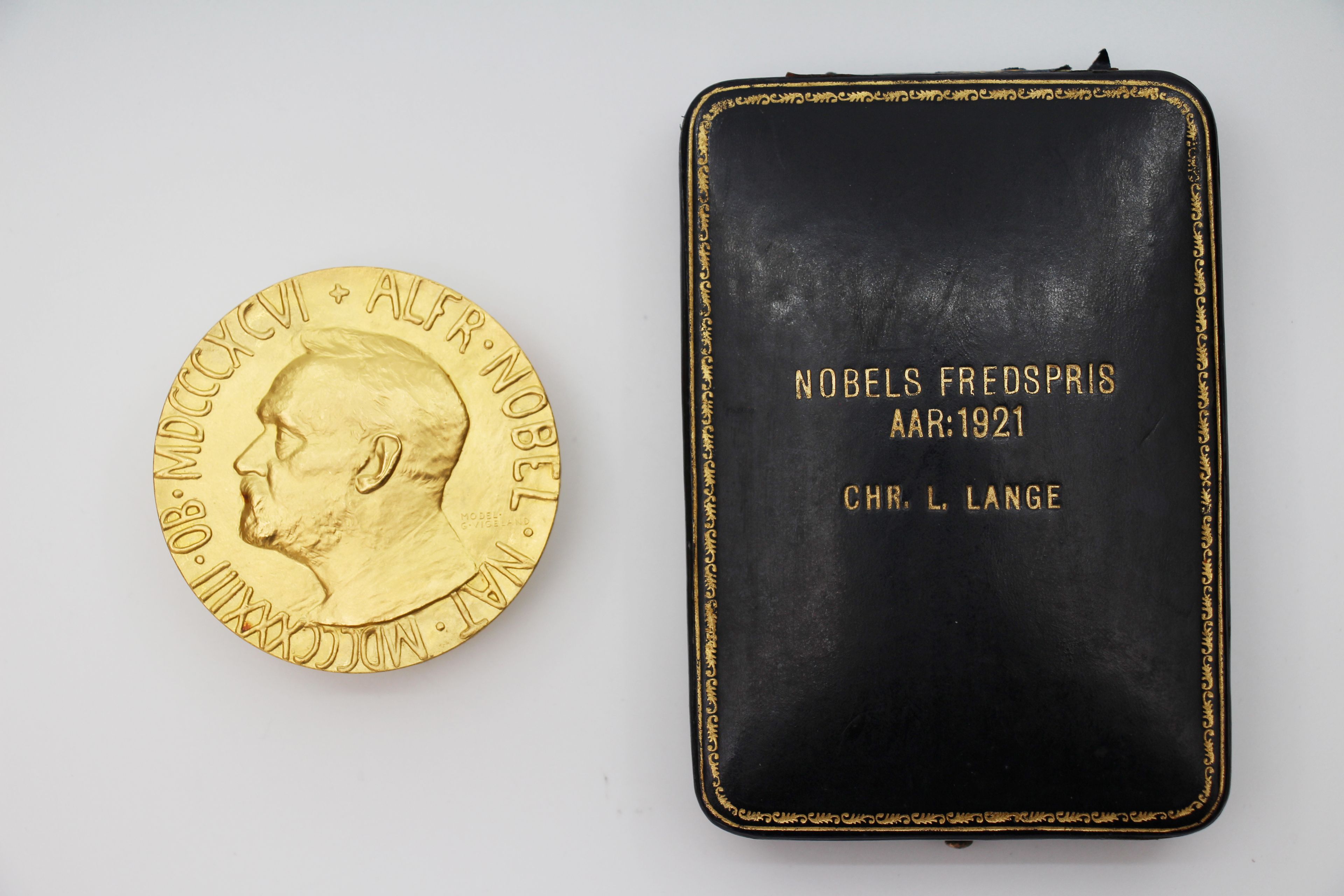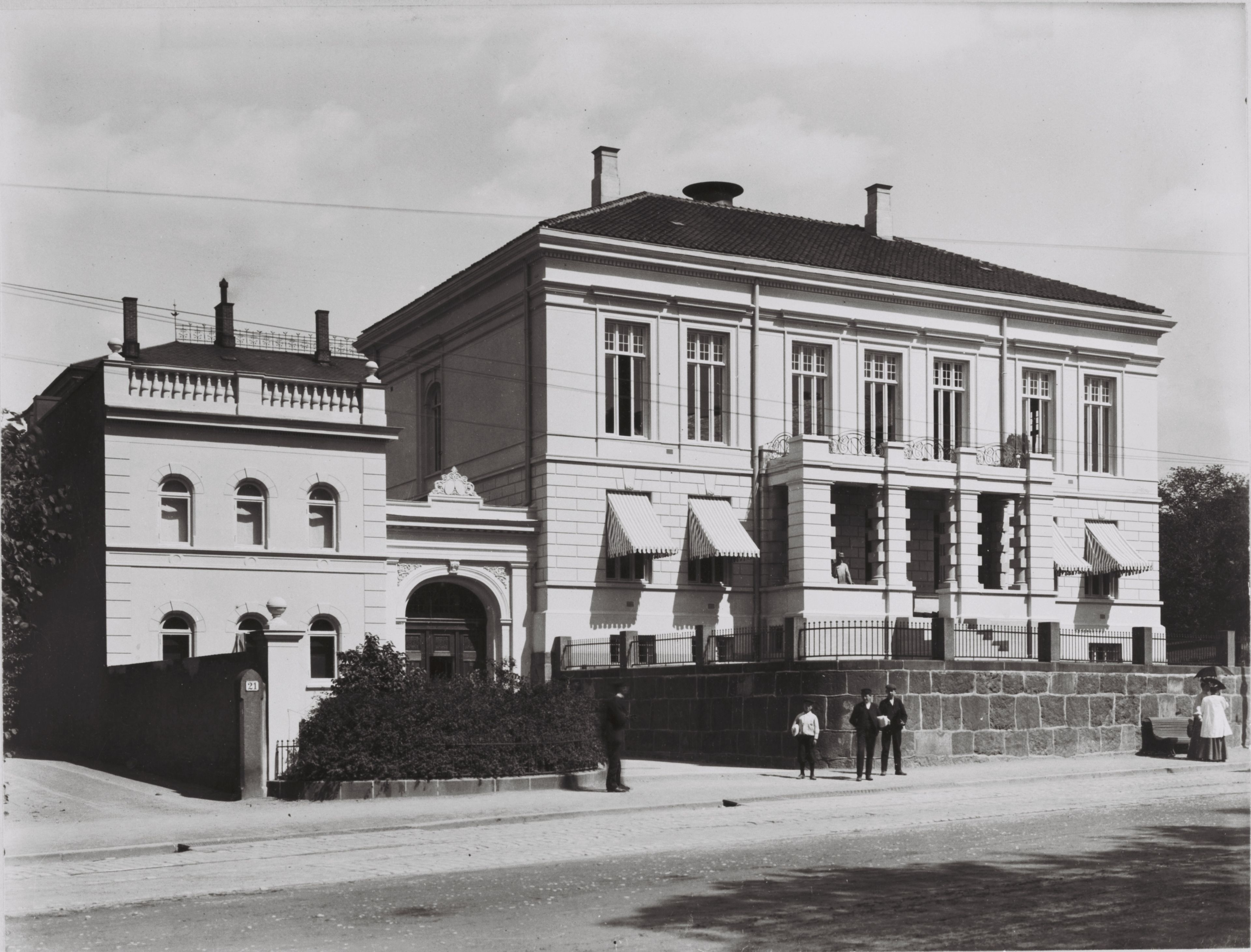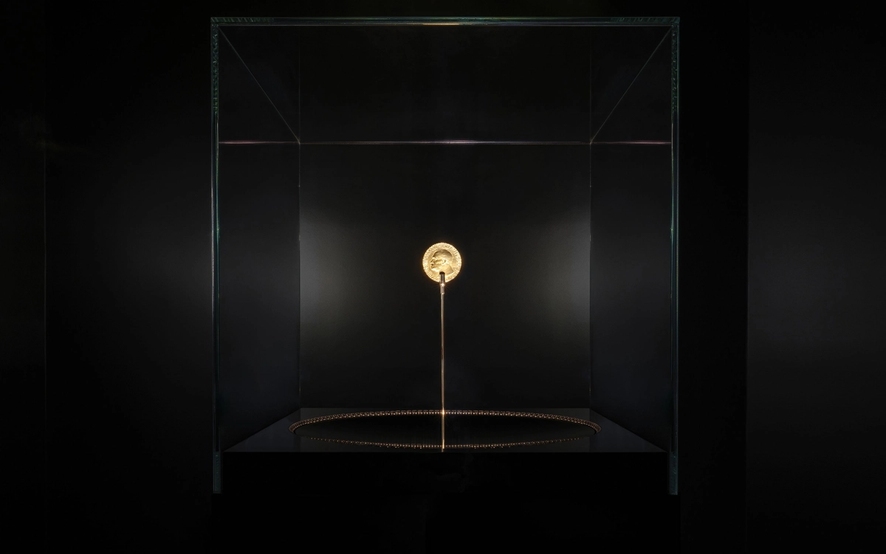First Secretary of Peace
Throughout the Nobel Peace Prize's 120-year history, only two Norwegians have received the award, and only one is truly remembered for it.
"Christian Lous Lange was quickly overshadowed by Fridtjof Nansen, who received the award the following year. You do not become as great a national hero by sitting on hard chairs during international meetings as you become by skiing across the North Pole," says historian and Lange biographer Øyvind Tønnesson.
He believes Christian Lous Lange, the 1921 Nobel Peace Prize laureate, deserves a prominent place in the history books. The legacy of Lange is about much more than his son Halvard, who became Norway's longest-serving foreign minister.
Internationalist and realist
"Christian Lange's international involvement left a lasting mark on Norwegian foreign policy, both directly and indirectly. His approach was sober idealism. He was a champion of a form of international cooperation that involved striving for ambitious goals, whilst also emphasising realism and what is possible to achieve," says Tønnesson.
There was little that indicated a life in the service of peace for the government official’s son from Stavanger who became a teacher in the nation’s capital. At the age of 30, he was a married man with children and worked as a history teacher. One day there was a knock on his classroom door. It was an envoy from the Norwegian parliament who wanted to involve Lange in an important assignment. The parliament was to host an inter-parliamentary conference and needed a secretary who knew French, German and English. Lange did a good job, and when the parliament established the Norwegian Nobel Committee the following year, Lange was asked to take the secretarial job there as well.
In his will, Alfred Nobel had decided that a committee elected by the Norwegian Parliament should award the Nobel Peace Prize. It became Lange's task, as the Committee's first secretary, to create a system for awarding the Peace Prize, including the organization of committee meetings and the selection of prize laureates, ceremonies and festivities. In 1904, he worked to establish the Norwegian Nobel Institute on Drammensveien in Oslo, and he became the Institute's first head.
"There is no other person in Norway whose entire life and work is linked as closely to the Nobel Peace Prize as Christian Lous Lange’s. "
Christian Lange had close ties to the Liberal Party [Venstre], and Foreign Minister Jørgen Løvland, who also led the Norwegian Nobel Committee, is said to have suggested that he wanted Lange in the country’s new diplomatic corps. Although this didn't happen, Lange himself became more interested in international work. In 1907, he made a strong impression as a member of the Norwegian three-man delegation during the Second International Peace Conference in The Hague. Two years later, he was appointed for life as Secretary-General of the Inter-Parliamentary Union (IPU), first helping to develop the organization and then maintaining it through the First World War.
War prevention
"During the First World War, Lange moved the IPU headquarters from Brussels to Christiania [now Oslo], and because very many of the organization's members were on opposing sides in the war, there was little he could achieve as Secretary-General. During the war, new peace policy networks had to be formed and international peace making developed both new goals and a new character, " says Tønnesson. In this situation, Lange's sober idealism came in handy. "Lange was not among those who spoke out about ending the war at all costs. He worked instead to develop ways to prevent a new war.”
When the victorious powers formed the League of Nations after the First World War, Lange was also involved. He called the new initiative "A group of real power mongers", and concluded, "We must be part of it!"
Nobel Peace Prize laureate
For many years, Lange was part of or connected to the Norwegian delegations to the League of Nations. However, it was for particularly for his work as Secretary General of the IPU and involvement in the wartime transnational network of peace politicians that he was awarded the Nobel Peace Prize in 1921.

Lange shared the Prize with Swedish Prime Minister Hjalmar Branting. At the Nobel Peace Prize Ceremony in 1921, which took place on the Nobel Institute's premises, Christian Lous Lange returned to the institute he had been involved in establishing, this time as a guest of honour. But Lange's relationship with the Nobel Peace Prize did not end there. He was a consultant to the Norwegian Nobel Committee for 23 years and in the last years of his life he was also a member of the Committee.
Lange died on December 11, 1938, the day after the awarding of the Peace Prize, which went to the Nansen International Office for Refugees. "The winner of the Peace Prize from 1921 would hardly have disagreed with that award," says Tønnesson, "For the peace politician Lange, the peace cause was largely about promoting international cooperation to solve problems that could otherwise intensify conflicts and trigger war."
Share:

